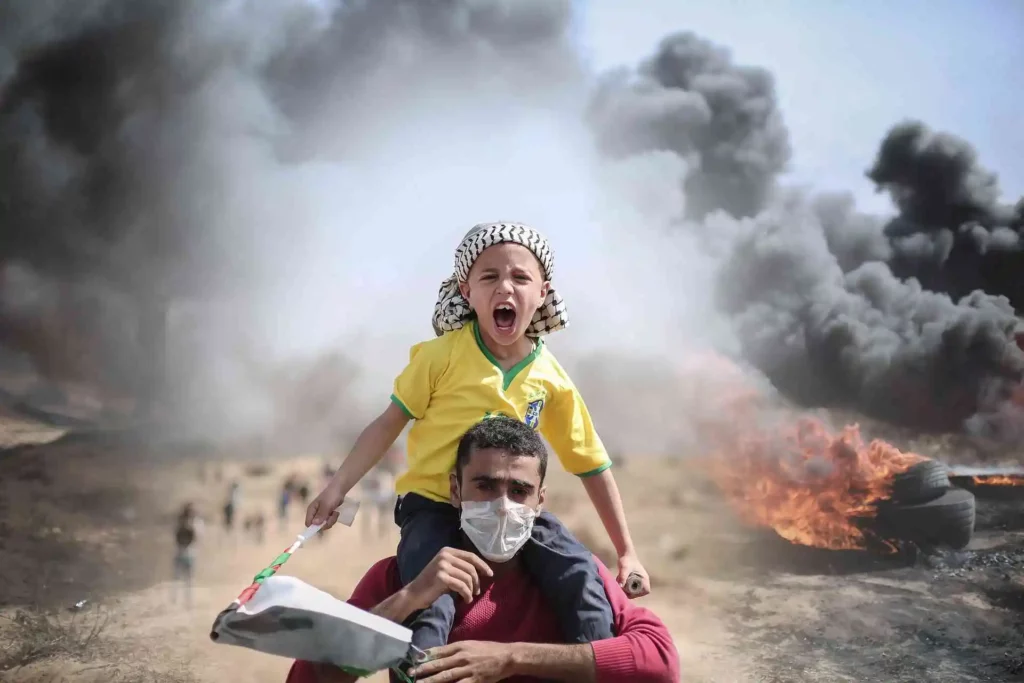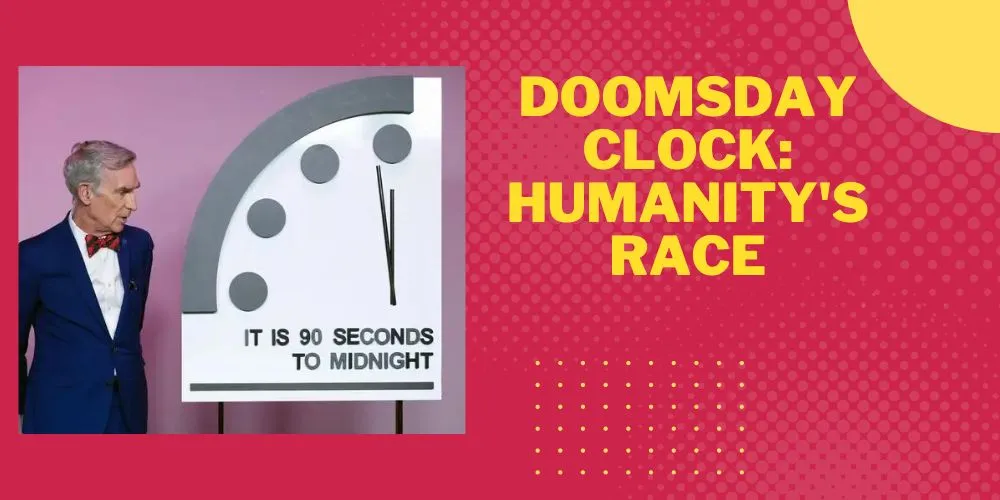In a scene of pandemonium that residents likened to the end times, Gaza’s Nasser Hospital, once a sanctuary, transformed into a warzone forcing a precipitous evacuation under the cloak of darkness, gunfire, and chaos.

Eyewitnesses Paint a Shocking Picture
As per Dr. Ahmed al-Mughraby, a surgeon who fled with his family, a haze of smoke blanketed the corridors while people scrambled for an exit. “Smoke was everywhere, it was like doomsday, people running everywhere,” he recounted.
Families, medical staff, and those who could muster the strength to walk abandoned the second-largest hospital in Gaza amidst an Israeli military operation citing the presence of hostile operatives – a claim steadfastly denied by Hamas and local medical personnel.
Survivors reported traumatic incidents, including one male nurse being detained and his dignity stripped at an Israeli checkpoint – an event that broke the stillness of the night with his screams.
A Trail Through The War-Torn Labyrinth
In the dim light of the besieged enclave, those fleeing the conflict recounted their treacherous navigation through war’s detritus, sidestepping both the remnants of destroyed infrastructure and, heartbreakingly, human casualties.
“I’m injured and for one hour I walked,” Baraa Ahmed Abu Mustafa, a civilian wounded in the conflict, stated while bracing himself on mismatched crutches. His perilous trek illustrated the night’s desperate migration, punctuated by gunfire overhead and a chilling landscape of fallen bodies around the hospital’s perimeter.
Israel’s military narrative diverged, detailing a precision operation targeted at reclaiming bodies of Israeli hostages and insisting no coercive measures for evacuation were in place. Colonel Moshe Tetro’s briefing emphasized a unilateral opportunity for safe passage prior to the armed forces’ entry, flatly denying any combat ensued within hospital bounds.
Yet despite these assurances, the on-the-ground experience of nearly 150 patients and medics who remained was one of besiegement, loss of electricity, and the looming threat of disease as described by the World Health Organization. The WHO’s commentary painted the hospital’s condition as indescribable destruction, its cessation a concerning byproduct of warfare.
Stifling Siege Versus Humanitarian Duty
While the WHO and other aid agencies commenced evacuations, the disparity in accounts between Israeli military spokespeople and humanitarian organizations underscored the complexity of conducting warfare in densely populated urban areas where civilian infrastructure such as hospitals are in harm’s way.

Drone strikes and military canines were reported by Hakeem Salem Hussein Baraka, a volunteer at the hospital. He witnessed the obliteration of the orthopaedic department where he worked.
The use of “quadcopters,” “aggressive dogs,” and the presence of sizable armaments within the hospital premises were central to Israel’s justification for the assault. The aftermath is not just a physical devastation but a humanitarian crisis in the making.
Amidst Ruin, Resilience
Footage and testimonials all underscore the unflattened spirit of Gazans, forced to contend with the harsh realities of their surroundings with unwavering resilience.
The hospital, an emblem of healing and care, will remain in the collective memory of a population as a vulnerable victim of conflict, a stark symbol of the complexities embedded in modern urban warfare.
The Nasser Hospital’s struggle serves not just as a wartime anecdote but as a bidding warning of the delicate interplay between military objectives and the sanctity of medical establishments.
The international community is left peering through the smoke left by the war’s erosion of not only the physical but the sacred realms of humanity’s refuge – a hospital’s walls.


